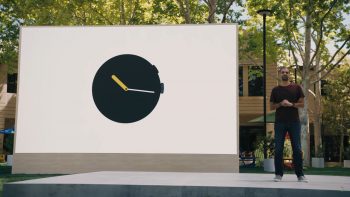
Your current Wear OS smartwatch isn’t likely to receive the “big” update, and that’s okay
Okay, okay. So you just spent a couple of hundred dollars on a fancy new smartwatch. You watched the Google I/O 2021 keynote and watched as the new partnership with Google and Samsung was announced and you got all excited. Surely this new smartwatch will receive the update, you have nothing to worry about, right? I mean, right? Wrong.
Fossil has already confirmed that it won’t be upgrading current smartwatches to the latest version of Wear OS whenever it arrives. Samsung has done the same, meanwhile, TicWatch Pro 3 owners are currently stuck in a bit of limbo. First, it was “confirmed” by a customer service representative that the only Snapdragon Wear 4100 smartwatch would receive the update. Then the company issued an official “non” statement essentially saying that the decision has yet to be made. Here’s the quote that was provided to 9to5Google:
Mobvoi are a close partner of Google and have even received investment from them, but there hasn’t been any official confirmation on any update timings from Google as of yet.
As someone who loves their TicWatch Pro 3, I can understand the frustration of what is currently going on. Being stuck in limbo isn’t fun for everyone, and the Pro 3 is the only smartwatch using Qualcomm’s latest chipset (even if it is a year old). But if you take a step back and look at the fact that Samsung won’t even be updating its $400 Galaxy Watch 3 to the next version, you have to understand that this is a “clean break” for Samsung, Google, Fossil, and likely other smartwatch makers.
The next version of Wear OS has the potential to be the most ambitious wearable undertaking that we’ve seen in quite some time. Let alone it could potentially be the largest Wear OS update ever. With Fitbit in tow, Google and Samsung have a unique opportunity to try and actually provide a formidable opponent to the Apple Watch.
Apple’s watchOS is much more refined, offers better third-party app support, and “just works”. Wear OS is a jumbled mess that feels like the old days of Android when we were dealing with larger fragmentation issues than we are dealing with now. Mobvoi has the platform figured out for the most part, but things are still hit and miss on that front too.
Google and Samsung were already rumored to be working together on the upcoming Whitechapel processor, along with Google sourcing Samsung Display for the fabled Pixel Fold that could or could not be on the way. It only makes sense for the two companies to work together on a wearable platform that could actually be useful. Take Samsung’s prowess to make a user-friendly wearable OS and Google’s Android branding, then sprinkle in the fitness and stat tracking offered by Fitbit, and it sounds like a recipe for success.
It’s not often that companies have an opportunity to hit the reset switch. So Samsung and Google recognized the opportunity to do just that, and if everything comes to fruition, we the customer base should reap the rewards. It’s a rare opportunity for some excitement to finally return to a platform that has been stagnant and left alone as an afterthought for far too long.
Since Samsung and Google have yet to really reveal too much about the upcoming platform, we don’t have too much longer to wait. Samsung is hosting a virtual event during Mobile World Congress on June 28th, where it will be showing off its “New Watch Experience”. Samsung doesn’t explicitly mention Wear or Wear OS, but it does state the following in the event description:
The Galaxy ecosystem of connected devices, services, and partnerships provide people with choice, freedom, and possibility. We’re reimagining smartwatches, creating new opportunities for both developers and consumers. And we’re enhancing security, giving people the protection they need in an open and connected world.
This is likely to give everyone a sneak peek at what will be arriving whenever the Galaxy Watch 4 is debuted later this year. Plus, if the new Wear OS is this big of an undertaking, Google and Samsung are going to need to get developers on board quickly, and that means putting the wearable OS in the hands of developers.
Does it suck that your smartwatch that just came out last year likely won’t get the fancy new upgrade? Yes, it does. It sucks to know that you’re practically owning a stagnant piece of hardware despite thinking it would be upgraded for a few years. But if Samsung and Google are going to do this whole Wear OS thing the right way, it needs a clean break from the old regime.